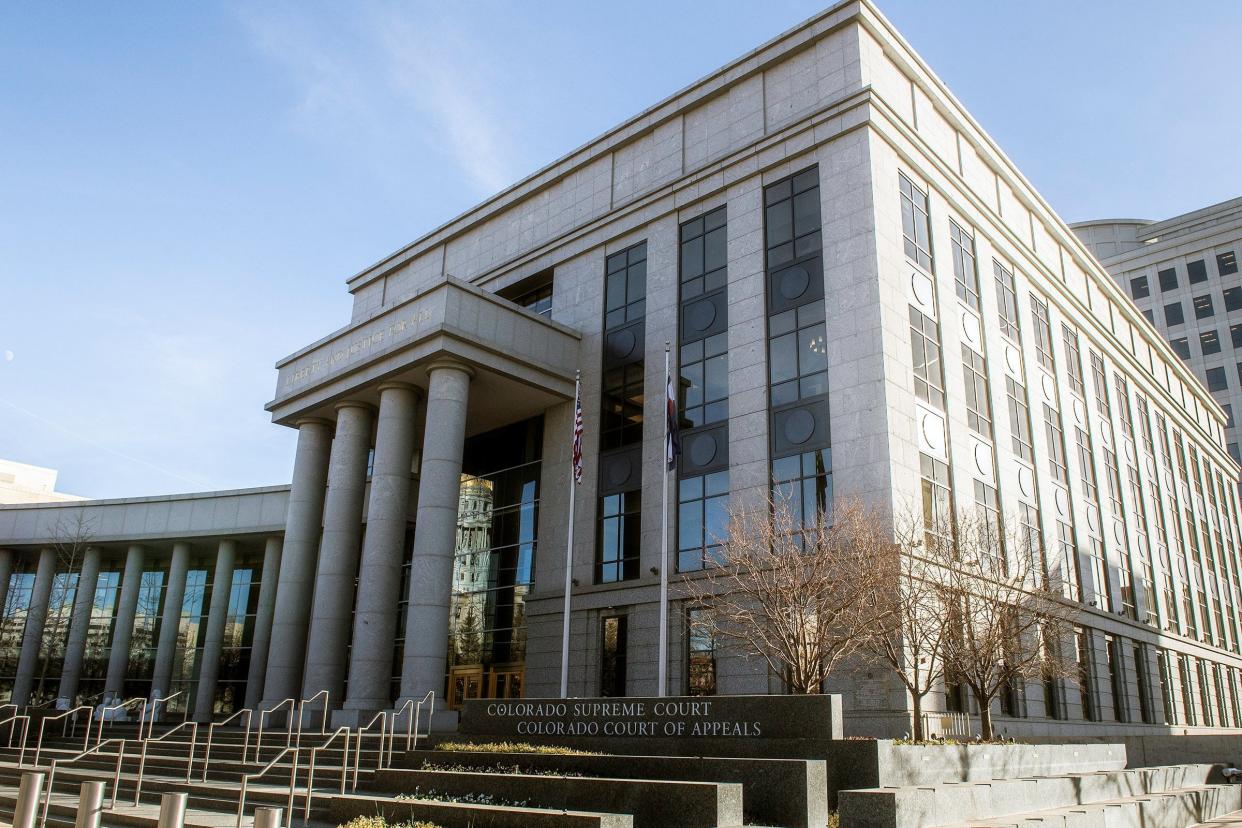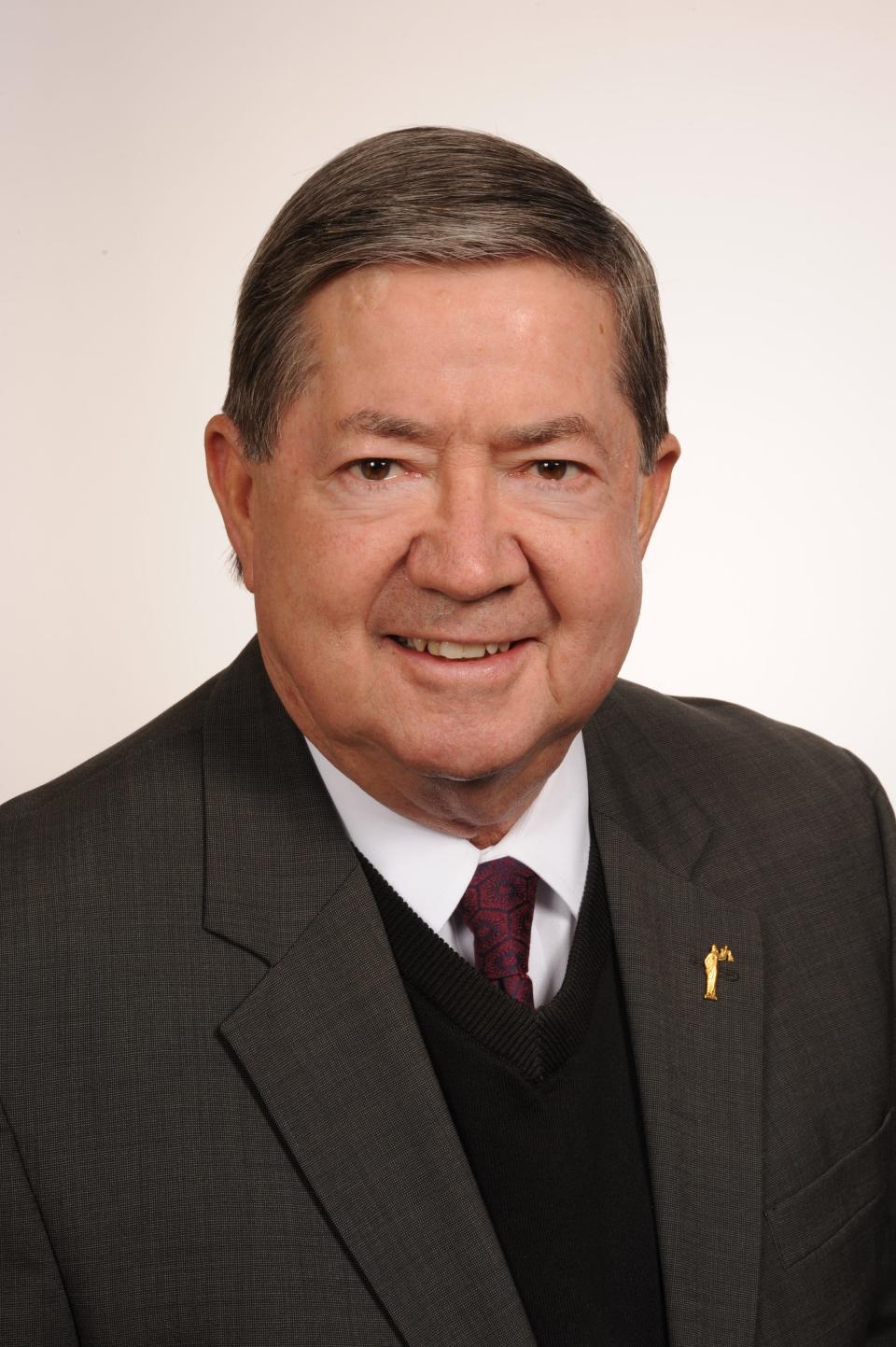Former Oklahoma AG: Colorado Supreme Court is right on decision to bar Trump from ballot

- Oops!Something went wrong.Please try again later.
"No person shall be a Senator or Representative in Congress, or elector of President and Vice President, or hold any office, civil or military, under the United States, or under any State, who, having previously taken an oath, as a member of Congress, or as an officer of the United States, or as a member of any State legislature, or as an executive or judicial officer of any State, to support the Constitution of the United States, shall have engaged in insurrection or rebellion against the same, or given aid or comfort to the enemies thereof. But Congress may by a vote of two-thirds or each House, remove such disability."
That's the 14th Amendment to the U.S. Constitution, Section 3.
A case was brought by several Colorado voters, all eligible to vote in the Republican primary, alleging that candidate Donald Trump fell into the language of Section 3 and, thus, should not be on the ballot for president because he was ineligible to serve. The lower court ruled that he had, indeed, taken an oath to defend the Constitution and had, indeed, engaged in insurrection but that the courts of Colorado lacked the authority to bar him from the ballot.
On appeal, the Colorado Supreme Court upheld the rulings as to fitting the definitions in Section 3 and engaging in insurrection but reversed on the ultimate question of ballot access and ruled that Donald Trump could not be listed as a candidate.
The Colorado Supreme Court got it right.
More: OCU law professor: Why disqualifying Trump from ballot would be great political mistake
The decision was over 130 pages and dealt with each issue raised by the coterie of interested parties, including Donald Trump, and disposed of them with case law and statutes.
Yes, the presidency is an "office." The Constitution refers to the presidency as an office 25 times.
Yes, the oath taken by Donald Trump met the definition of swearing to support the Constitution.
Yes, Colorado had authority to determine eligibility to run ― indeed, they had the duty to do so.
The court, in essence, ruled that in adopting the 14th Amendment in 1868, we added another qualification to be elected president: not to have engaged in insurrection.
The court reasoned no one would question the authority of a state to bar from its ballot as candidate for president, someone who was not at least 35 years of age, or someone who was not a citizen, or someone who had not resided in the country for at least 14 years ― the original requirements. If a candidate for president had engaged in insurrection after taking an oath to defend the Constitution, as the lower court found after hearing evidence, that person did not meet the constitutional qualifications for the office.
The court noted that under Article II, Section 1, of the Constitution, each state is authorized to appoint presidential electors "in such a Manner as the Legislature thereof may direct." Colorado passed laws providing a process for determining eligibility, and those laws were followed in this case.
More: Guest: Do we really need to determine if the president is an elected official or an officer?
Donald Trump lost the election in 2020. Notwithstanding that immutable fact, he invited his supporters to Washington to "Stop the Steal," and promised that it would be "wild." His messaging was aimed at far-right extremists, the Proud Boys, the Oath Keepers, the Three Percenters ― and they came.
He spoke to them on Jan. 6 and told them to go to the Capitol, where the electoral vote count was to take place and be made official. And he told them to "fight" in order to "stop the steal."
Yes, the Colorado Supreme Court got it right. Now we will see if the U.S. Supreme Court can do the same.

Drew Edmondson served as attorney general of Oklahoma from 1995 to 2011.
This article originally appeared on Oklahoman: Former Oklahoma AG says Colorado court is right on Trump decision

